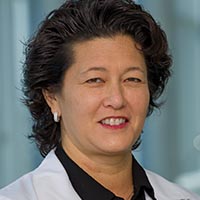New Patient Appointment or 214-645-8300

Jean de Leon, M.D. Answers Questions On: Advanced Wound Care
-
When does a wound become a chronic wound?
-
Thirty days is a rough indicator, and it is based on the definition by the Centers for Medicare and Medicaid (CMS). Otherwise, any wound that doesn’t heal in a reasonable amount of time is a chronic wound, and many types of wounds can become chronic. Delays in healing may be due to underlying disease, poor access to resources to care for the wound, and/or inappropriate treatment and misdiagnosis.
-
How is the UT Southwestern Wound Care & Hyperbaric Oxygen Therapy Clinic able to treat those patients successfully? What is done differently here than at other wound care centers in the region?
-
Providing all aspects of care is at the heart of offering patient-centered care; that’s what we do, and it’s what separates us from the other clinics out there. We have the team of clinicians to help patients with wounds, we all work together, and we’re all in one location. This multidisciplinary approach has been shown in the literature to lead to more cost-effective care and better outcomes.
Successful outcomes start with having appropriate workup and evaluations to ensure the proper diagnosis. Our clinic houses a vascular lab for timely evaluations of blood flow and transcutaneous oxygen testing to help predict wound healing and the possible need for hyperbaric oxygen treatment. In addition to the hyperbaric oxygen treatment chambers, our facility offers the use of ultrasound for debriding and cleaning wounds and total contact casting for offloading wounds. And because we’re part of a large health care center, diagnostic X-ray studies, CT, MRI, bone scan, and laboratory studies are readily available.
Our clinical staff has expertise in advanced wound care strategies and dressing applications. They are able to provide excisional debridement of unhealthy tissue as needed with each visit to maximize the healing rate. Additionally, ongoing support is available from our nutritional services, physical therapists, diabetic educators, social services, and home care services.
-
What specialties are included at the clinic?
-
Our multidisciplinary team consists of rehabilitation physicians, podiatrists, vascular surgeons, plastic surgeons, hyperbaric medicine specialists, nurse practitioners, and wound ostomy continence nurses.
-
Can you describe some of the specific treatments typically used in advanced wound care?
-
In general, our team follows national guidelines and incorporates advanced technological and pharmacological methodologies. For example, based on the national guidelines, patients receive dressings and modalities designed to maintain a moist wound bed and decrease the number of painful dressing changes. Dressings may include collagens, hyaluronic acid, growth factors, silver, honey, and bioengineered skin substitutes. Additionally, our treatment programs may include providing specialty support surfaces and modalities such as hyperbaric oxygen, negative pressure wound therapy, ultrasound for debridement and reduction of harmful bacteria, platelet-rich plasma treatments, and stimulation of fibroblast cells with radiofrequency. These are integrated into a well-balanced program for wound healing.